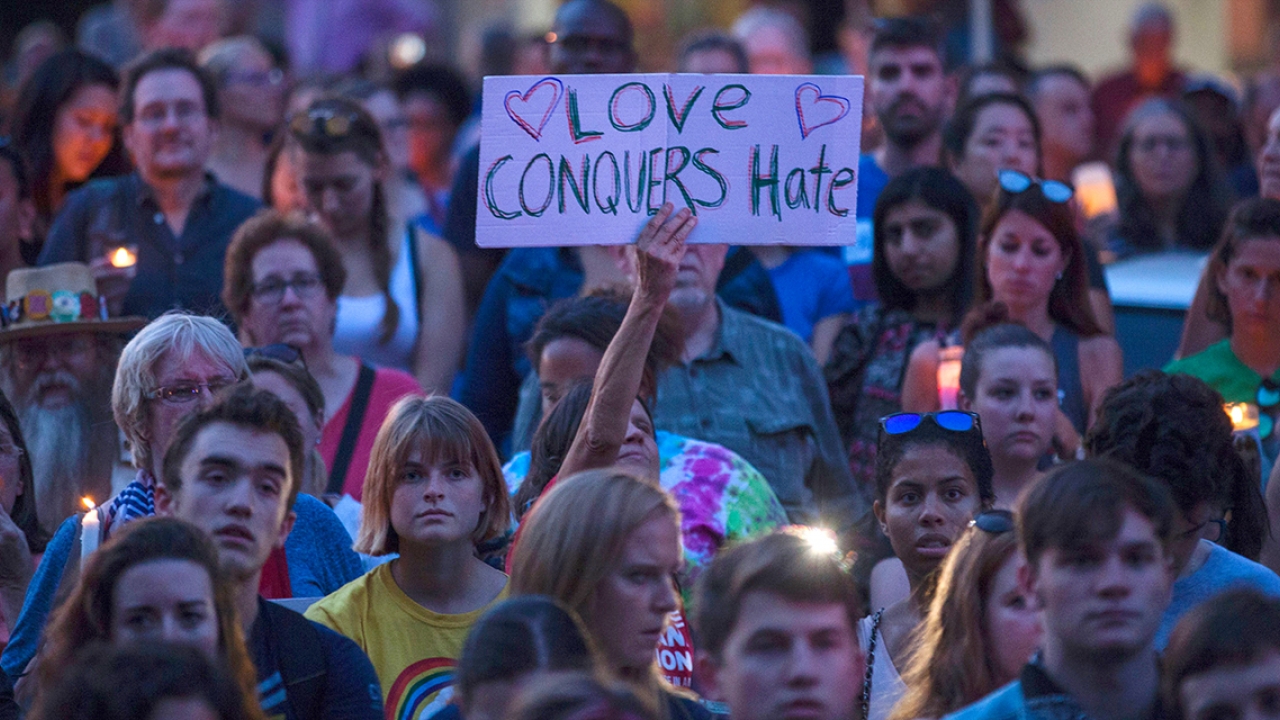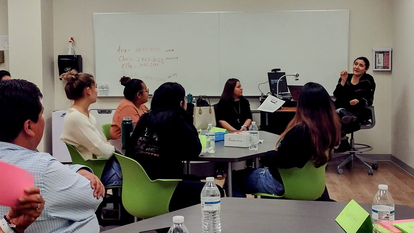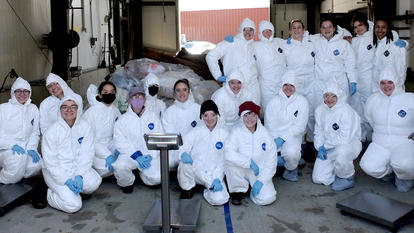Wellesley’s Academic Community Confronts Concerns Raised by Charlottesville Rally

As the nation continues to grapple with the events that shook Charlottesville, Va., last weekend, powerful questions are driving our national discourse. What can we learn from the history of racism in this country? What can be done to address our deepening divisions? What does this moment teach us about ourselves? Approaching these questions from their various vantage points, Wellesley faculty members have begun a conversation exploring what brought us to this moment and where we go from here.
Judith Rollins, professor emerita of Africana studies and sociology, who helped generations of Wellesley women understand the intersections of gender, race, and class, said it is important to examine the historical parallels between what is happening in America today and what was happening when Confederate monuments, like the one at the center of the conflict in Charlottesville, were erected in the late 19th and early 20th centuries.
“These monuments were not installed at the end of the Civil War, but later, when America was reacting to an influx of immigrants,” Rollins said. “Simultaneously, the eugenics movement was gaining traction, and ‘scientific’ writing on the ‘biological inferiority’ of certain groups was informing the public dialogue on race. Such research, conducted in the United States, was used by Hitler to strengthen his argument.”
Rollins also referenced the history of immigration policy in the United States—and the reactions that followed. “An early reaction to immigration occurred with the 1882 Chinese Exclusion Act and culminated with the 1924 Immigration Act, which placed quotas that favored Northern Europeans above all others,” she said. “The Immigration and Naturalization Act of 1965 tried to get rid of these blatantly racist policies, but Americans again reacted negatively to what they saw as a flood of people who were different than themselves.”
That fear of the “other,” said Rollins, has been a recurring motivating factor in the nation’s history of division among groups of Americans. “I keep coming back to the words ‘fear’ and ‘loss,’” she said. “In recent years, many working-class jobs in particular have been lost. That loss is something that people are reacting to with anger toward others. There’s much more social inequality in the country than there was 50 years ago.”
Citing the increasing number of hate groups and hate crimes in the United States documented by the Southern Poverty Law Center, Laura Grattan, associate professor of political science, said it is critical to examine the violence in Charlottesville within the context of scholarship on grassroots movements.
“The rise in white supremacist hate groups and activity is very much a combination of grassroots organizing and top-down leadership within government, media, and other institutions,” she said. “This confluence is why we can use the term ‘fascism’ to describe the violent, exclusionary, and authoritarian shifts we're seeing.”
"History tells us that we can't let up,” she said, even as prominent voices call for moderation and civility. "The more visible and vociferous we make our commitment to racial justice, the more we de-legitimize those voices—from the highest levels of government on down—who wish to normalize white supremacy in the public sphere."
"Just as importantly, we should be careful not to frame this week's events as the 'real white supremacy' at the expense of institutionalized anti-Black, anti-Muslim, and anti-immigrant violence, which is equally real and just as pernicious. This means we need to continue speaking out to change existing institutions, even as we intensify our voices and activism in the face of emerging threats."
Grattan acknowledged the important activism that members of the Wellesley community have been engaging in over the past several months. “Students have protested in the streets across the country, called their representatives to urge them to speak out against White House and cabinet appointees with long racist and anti-immigrant track records, and urged faculty and administrators on campus to address head-on the ways in which an intensified climate of racism is impacting people on campus,” she said. “Faculty have joined students on the phones and in the street, led teach-ins on campus, shared their perspectives in the media, and made connections with community groups in Boston and Metro-West who have been waging the long struggle for immigrant rights and racial justice.”
Robbin Chapman, associate provost and academic director of diversity and inclusion, offered thoughts on continuing actions that the Wellesley community can take, such as “holding spaces for faculty, staff, and students, both physically and online, to talk about their concerns and ways to address those concerns; hosting peace gatherings; and working with faculty who will lead activities over the next months to advocate for peace.”
Several members of the faculty and staff attended a vigil on Wellesley’s Town Hall Green on Sunday in support of Charlottesville. Stephen Chen, assistant professor of psychology, said, “As an Asian American, I felt it was so important to stand beside neighbors and colleagues in visible solidarity with Charlottesville, as we struggle through issues of racism and national identity.” Chen added that as a psychologist, he “was struck by the sense that even a mournful, unanswered question—‘How long?’—can bring people together.”
In a statement sent to the College community, President Paula Johnson condemned racist acts of hate and violence. She later added, “It was important for Wellesley to add our voice, in unequivocal terms, to the chorus of resistance against bigotry and violence. We can only overcome the hatred that divides us by lifting our voices to amplify the values and principles that unite us.”



